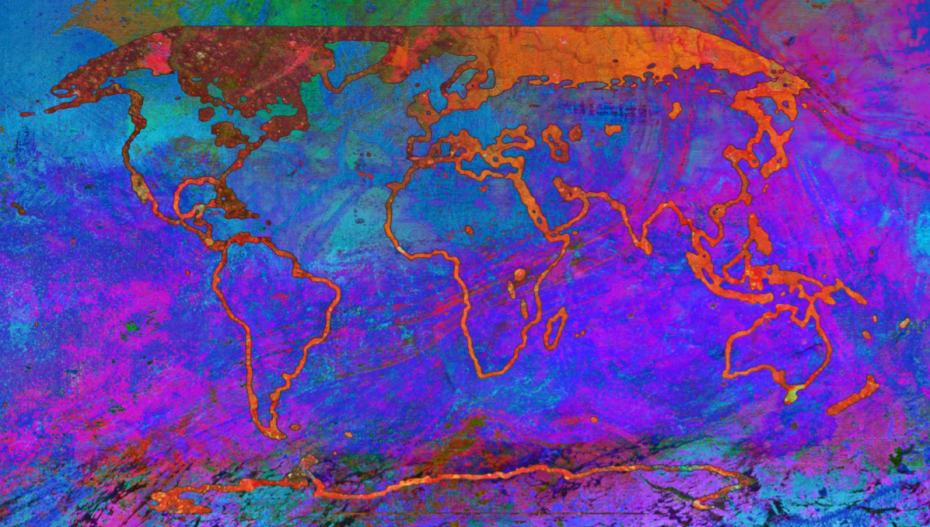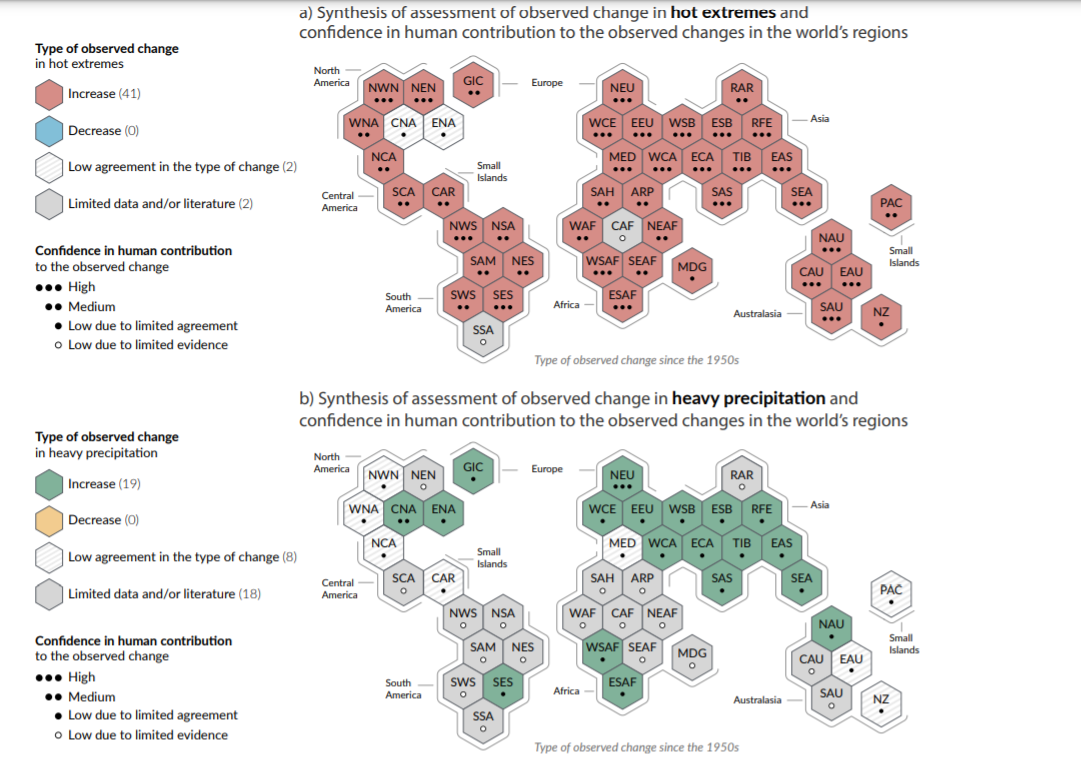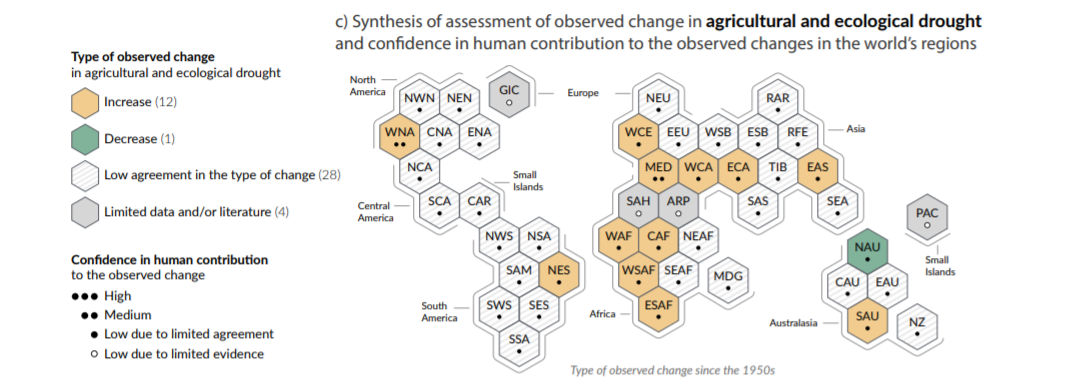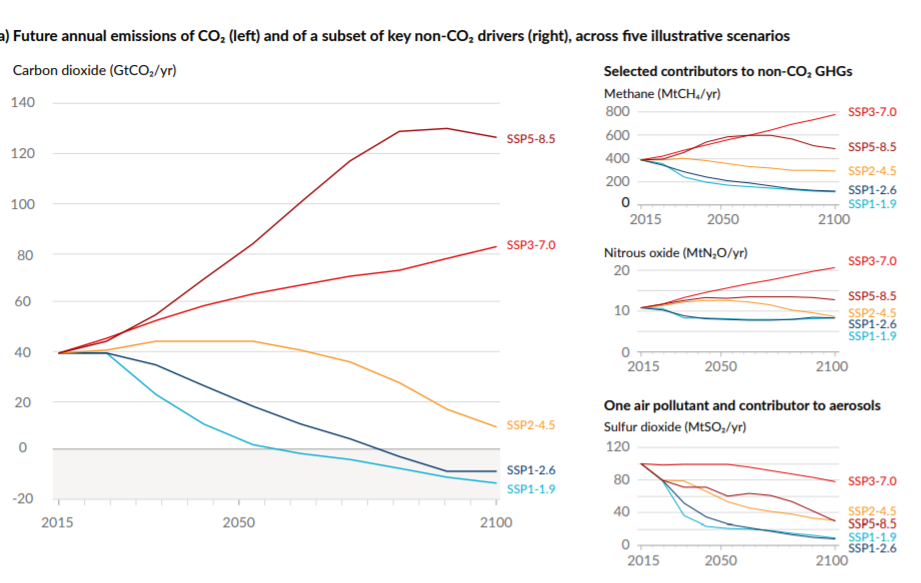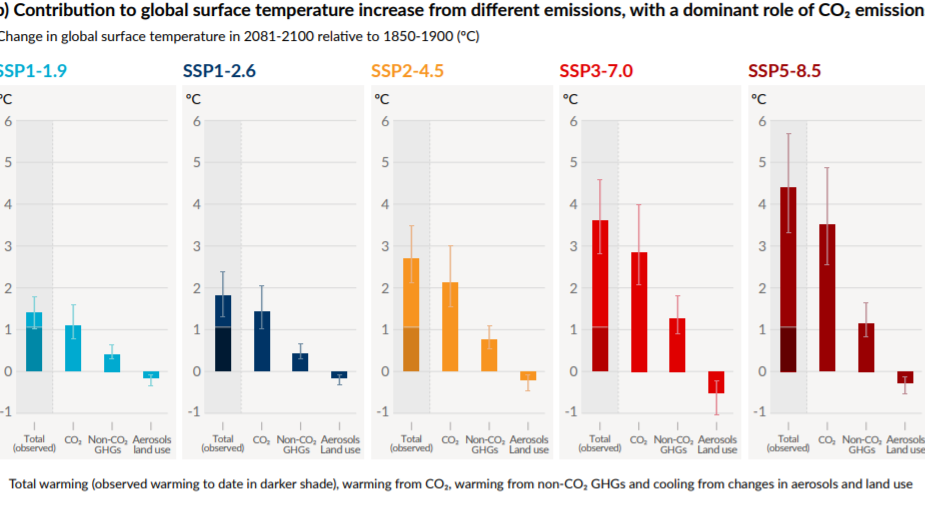The Intergovernmental Panel on Climate Change (IPCC), the world’s leading authority on climate science, has just published a detailed assessment of how humans are driving immutable change to our fast-warming world in every region.
The report, reviewed by 234 scientists from 66 countries has emerged as one of the most significant documents informing world leaders on the state of climate ahead of the UN climate negotiations (COP26) in November.
From record-breaking temperatures resulting in heatwaves, wildfires to devastating floods all around the world in recent years the IPCC report, Climate Change 2021: the Physical Science Basis has revealed the evident reality of global warming.
The report assumes significance for India because IPCC, for the first time, provides a localised outlook, with maps and atlas.
India has seen severe impacts of climate change, right from devastating floods, a number of cloudbursts in Uttarakhand and Himachal Pradesh, and deadly lightning incidents.
The important findings of the report:
The summary of the report starts with the statement: It is unequivocal that human influence has warmed the atmosphere, ocean and land. Widespread and rapid changes in the atmosphere, ocean, cryosphere and biosphere have occurred.
The report mentions that humans have caused the world to heat up by around 1.1C since the period 1850-1900. Although this is the average figure, different parts of the world are heating up at different temperatures. Especially, the Arctic region is heating up twice a rate higher than the global average.
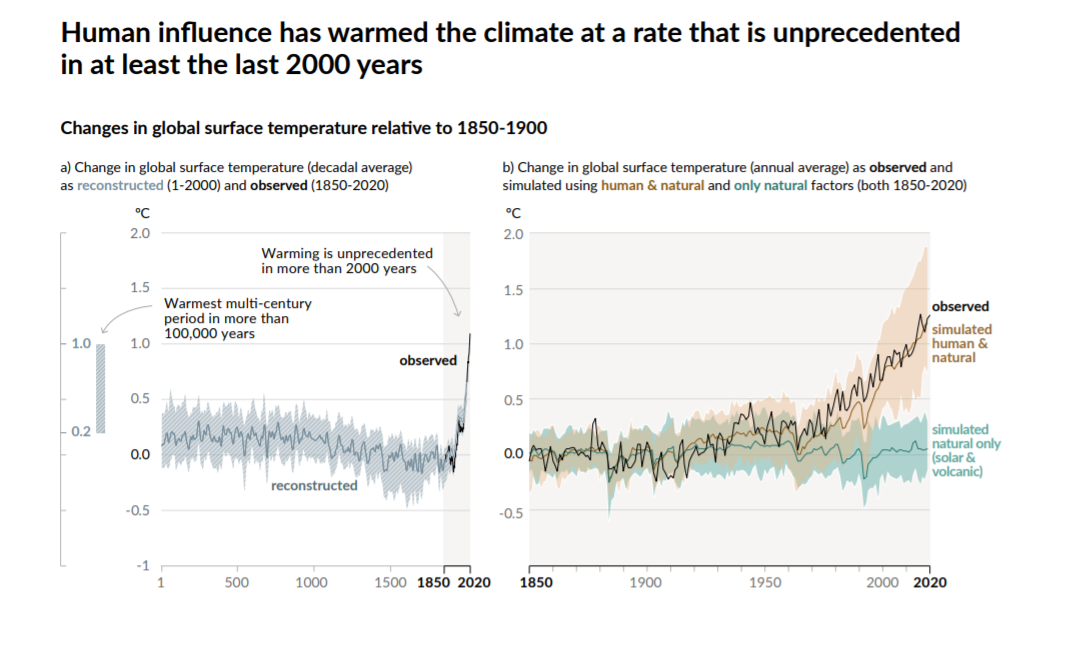
Human influence very likely contributed to the decrease in Northern Hemisphere spring snow and increase in the heatwaves since 1950. Human influence is likely the main driver of the global retreat of glaciers since the 1990s and the decrease in Arctic Sea ice area between 1979–1988 and 2010–2019.
It also clearly mentions that some of the heat extremes seen over the past decade would have been “extremely unlikely to occur” without the climate crisis.
The target for limiting global warming in the Paris Agreement is sliding and the predictions show that the world will reach 1.5C above pre-industrial levels sometime between 2030 and 2052. If temperatures continue, it will reach 3C by the end of the century, according to the report.
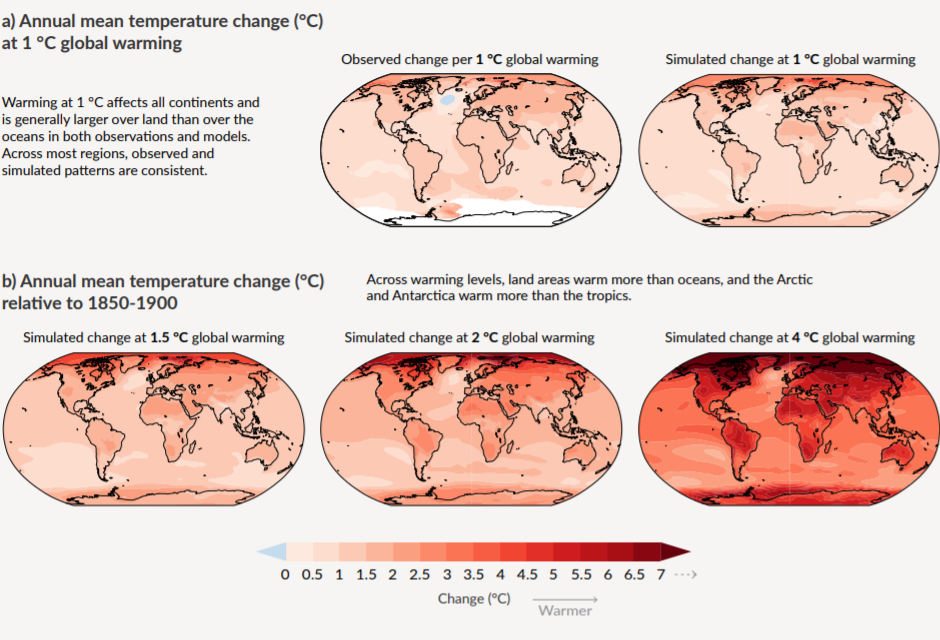
The report notes that levels of CO2, the primary driver of global heating, were higher in 2019 than at any time in “at least two million years”.
The levels of methane and nitrous oxide, the second and third biggest drivers of warming were higher in 2019 than at any time in “at least 800,000 years”.
It notes that “Many changes due to past and future greenhouse gas emissions are irreversible for centuries to millennia”. This includes changes to global sea levels, oceans and ice sheets. The sea levels “will remain elevated for thousands of years”.
Every region on earth has been affected by climate crisis. It says that “human-induced climate change is already affecting many weather and climate extremes in every region across the globe”.
The report also uncovered stronger evidence than ever before that extreme weather events such as heavy rainfall, droughts, wildfires, heat waves and hurricanes are becoming more frequent and more likely as a result of the climate crisis.
Tipping points in Earth’s climate – thresholds where a small change could lead to dramatic change – “cannot be ruled out”. Such tipping points could include ice sheet collapse or abrupt changes to ocean circulation patterns.
The scientists say that taking urgent action to address greenhouse gas emissions would minimise the likelihood of such tipping points occurring.
This report will set the agenda for climate change in the immediate future. The UN is holding climate talks in Katowice, Poland, in December, that are meant to establish rules based on the Paris climate targets that will guide governments’ efforts to cut emissions and avert disaster.


